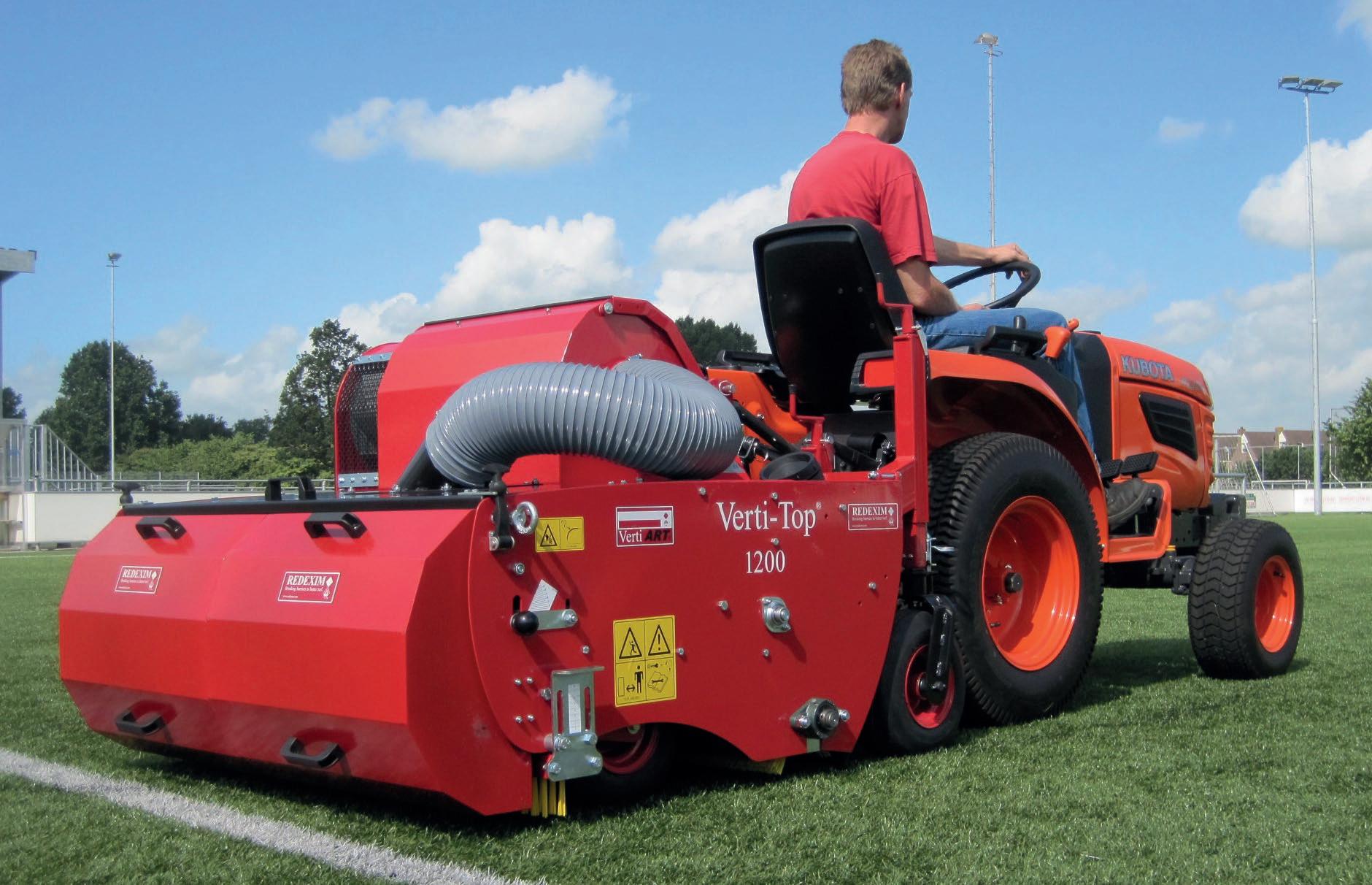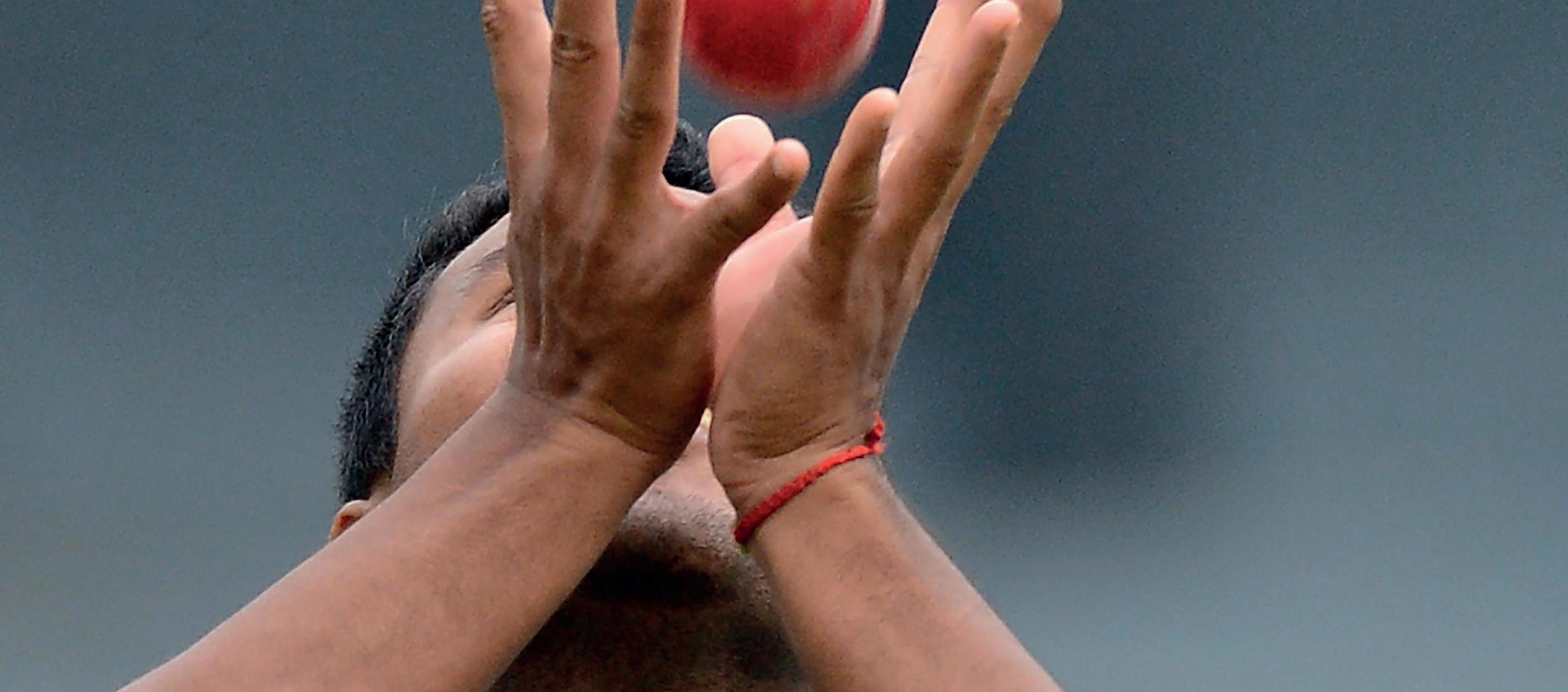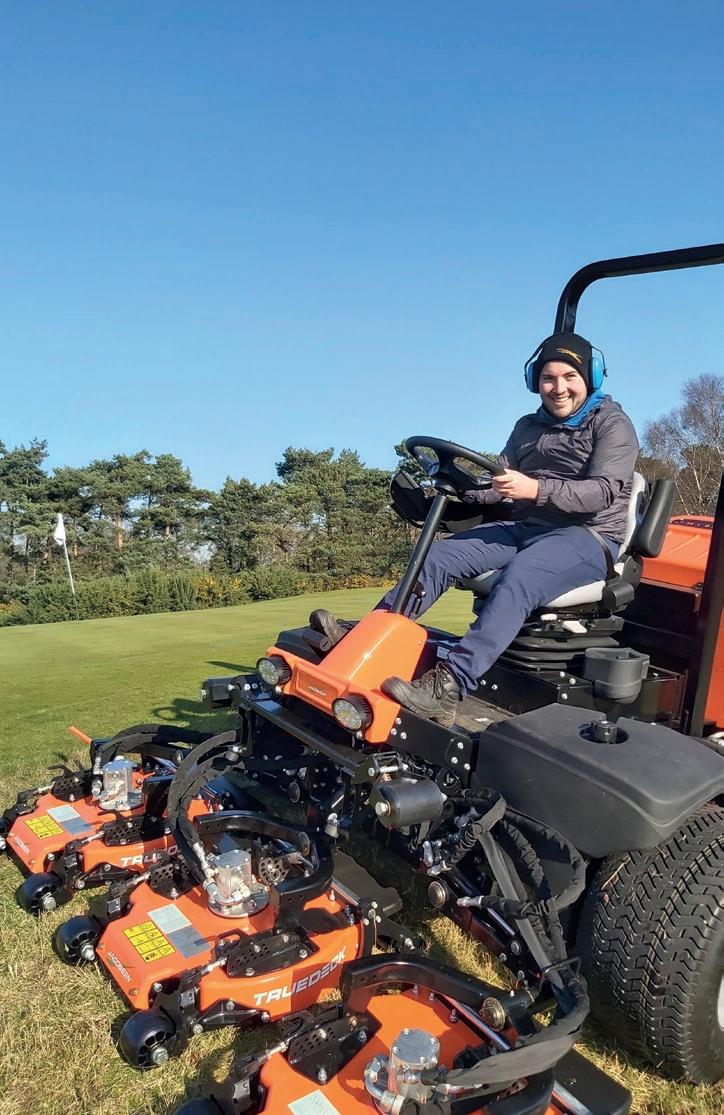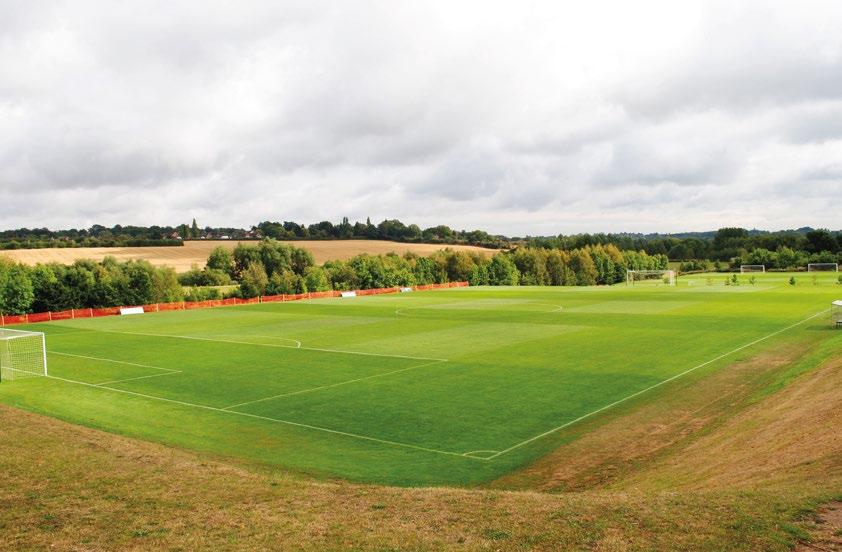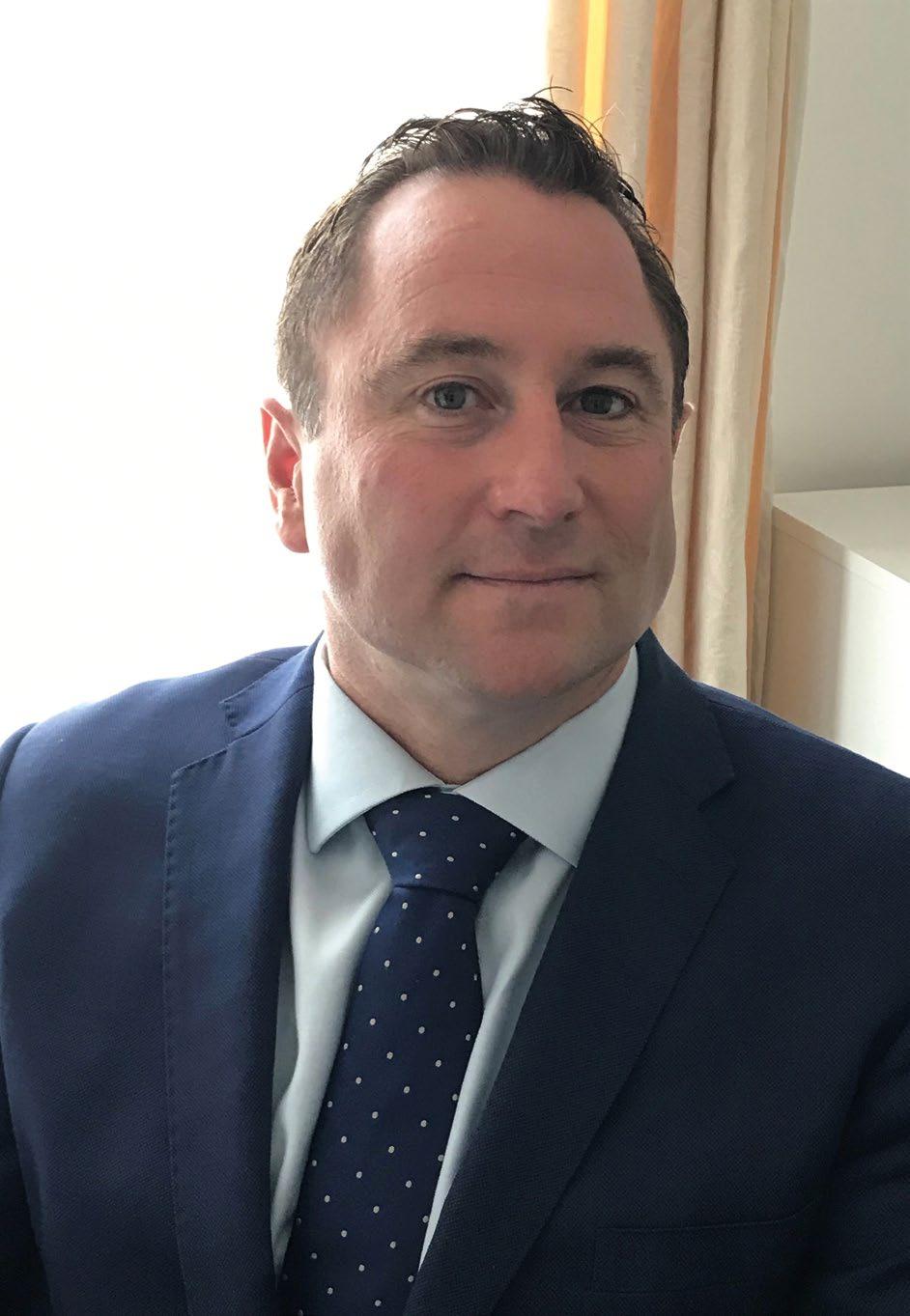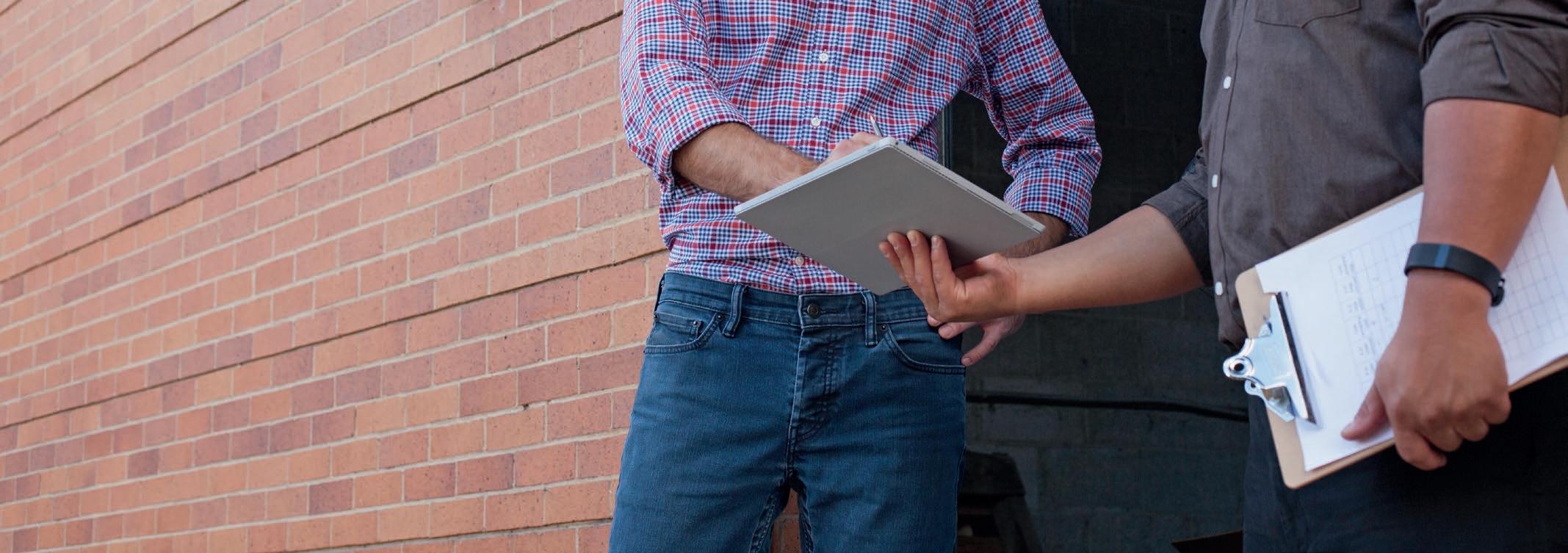
14 minute read
Women in industry
Cheryl is passionate about her role at Leicester Tigers
“THERE ARE FEW PEOPLE who typify the ‘club first’ mentality at Leicester Tigers better than Cheryl Hill,” said the club’s director of rugby, Geordan Murphy, when he recently commemorated Cheryl’s 30 years as a member of the club’s grounds team and her position as the longestserving member of staff. And her devotion to the club is matched only by her passion for the pitches: “Those pitches are like my babies,” she says.
Cheryl’s path into grounds management was created after her meeting with her school’s careers master, to whom she made it clear that she “liked being outdoors”. A subsequent two-week job placement with the local council’s parks department, “which included pitch maintenance and marking out”, then led to a short-lived apprenticeship with the council before she joined the Tigers in January 1990, aged 17, as assistant grounds person.
“Back then there was just the head groundsman, Derek Limmage, and myself as his assistant. And the Tigers trained only on Tuesday and Thursday nights. But when we went from being an amateur club to professional, the players were suddenly around all day and we had to change our regimes in terms of pitch maintenance.”
Nowadays, as well as helping to look after the stadium turf at Wheldon Road, Cheryl – as temporary deputy head groundsperson – and the grounds team (led by Ed Mowe) maintain three pitches at the club’s Oval Park training base – two soil-based surfaces and a Desso pitch plus a 3G surface under a dome. These are traditionally used six or seven days
Colin Hoskins
CHERYL CELEBRATES
Cheryl Hill has recently celebrated an incredible 30 years as a member of the Leicester Tigers’ grounds staff team – making her the club’s longest-serving employee
Editor
a week “though the Covid-19 situation changed that”, says Cheryl.
She continues: “The different surfaces don’t demand any real differences in maintenance, though the usual annual renovation of the soil pitches sees us just ‘tickle the top’ of these while the Desso surface is taken right off.” In terms of her role in maintaining the stadium pitch, this usually involves helping to prep the surface and cutting on a Friday, when there is a captain’s run, before another single or double cut on a Saturday ready for the game.
Walking the walk
Despite having no formal grounds care qualifications, “learning everything on the job” as she’s gone along has obviously not affected the quality of Cheryl’s work, as she ably performs any and all of the maintenance tasks required – mowing, aerating, seeding and marking out included. And that has entailed a lot of walking. “I remember one matchday last season when I completed something like 36,000 steps. I did work out how many steps I’ve done in my time here and it was in the hundreds of thousands of miles!
“Over the years, I’ve watched dads play and I’ve watched sons play. Now all I need is for the grandkids to come along!
“This club means so much to me,” she adds. “The people who work here, the people who play here – past and present – all mean a tremendous amount. It’s a very enjoyable job… and I wouldn’t change it for the world.” ■
With thanks to Jonathan Whitney, Leicester Tigers’ content and communications officer
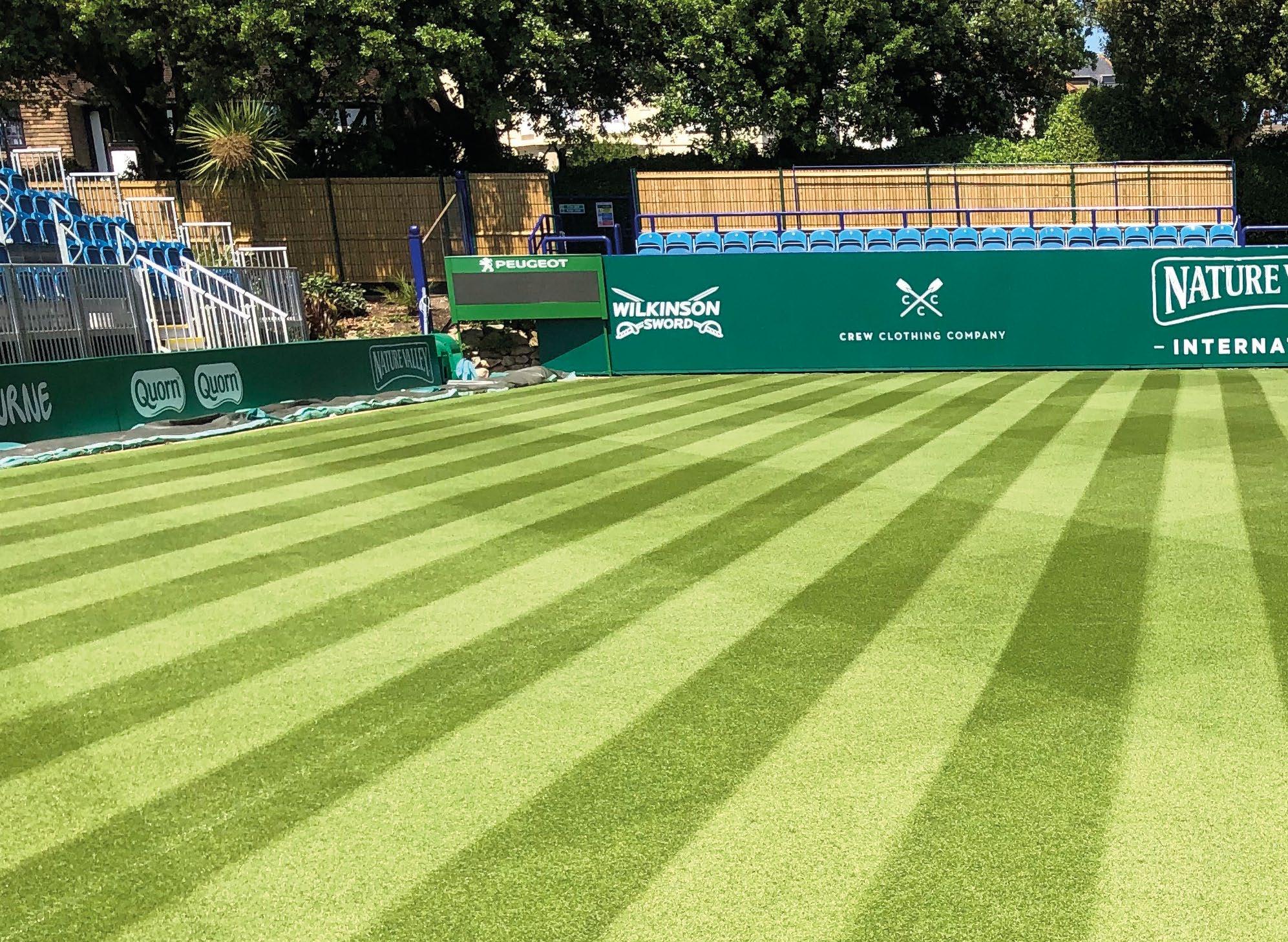
EVERY CLOUD HAS A SILVER LINING!
Devonshire Park’s triple GMA awardwinning head groundsman Danny Negus says that while the coronavirus lockdown created frustrations in terms of surface maintenance and preparation, it did allow him to make gains in other ways
Colin Hoskins Editor
AS DEVONSHIRE PARK in Eastbourne ‘opened for business’ (in a sense) on July 20 – providing its Championship-standard tennis courts for community use – head groundsman Danny Negus reflects on how the enforced hours away from the courts in the early days of lockdown not only allowed him to “exponentially advance his experiments on nutritional inputs on the courts” but also brought new levels of understanding about people’s wellbeing, particularly in
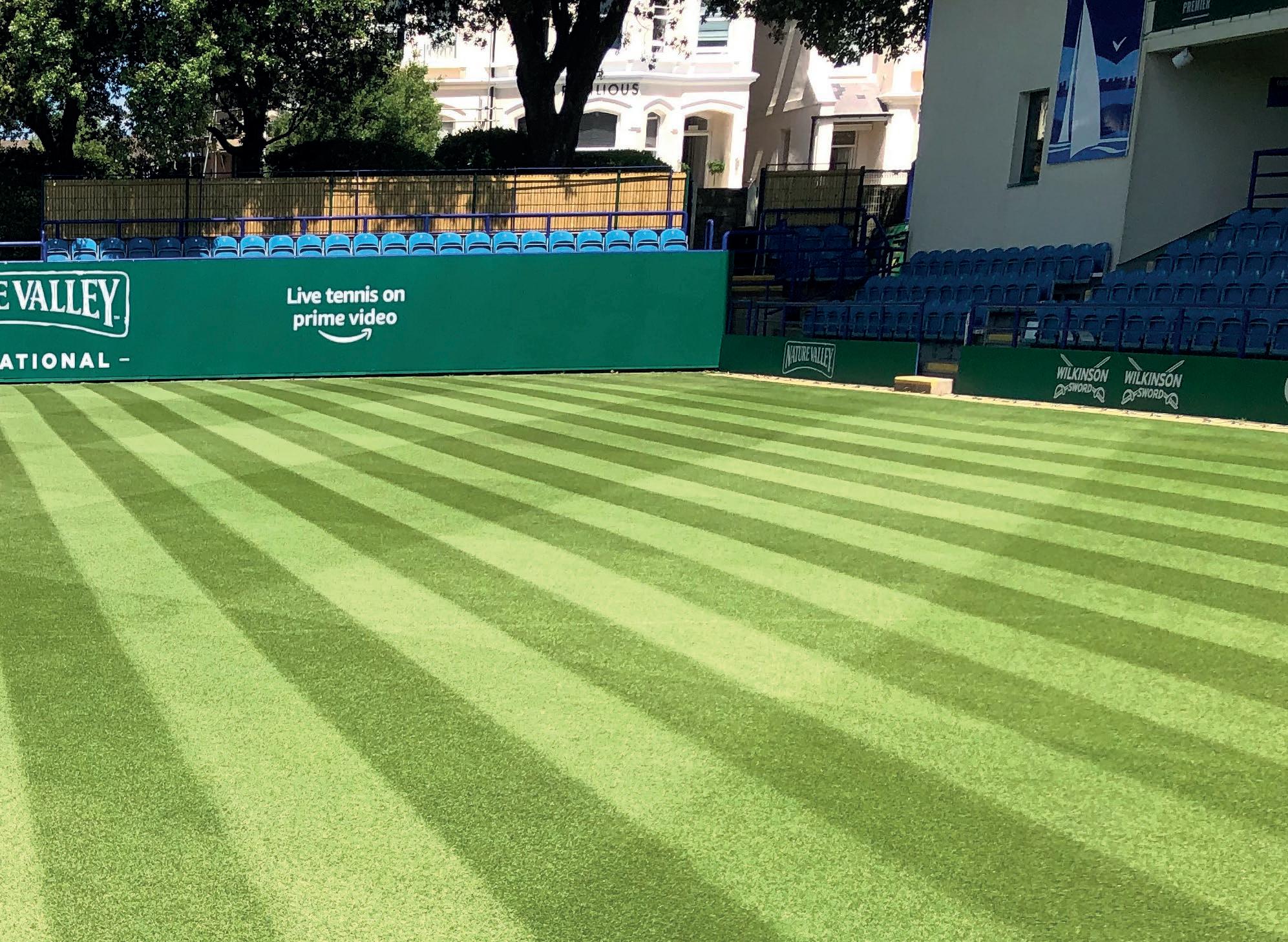
The Devonshire Park team was prepared to host the Nature Valley International, but it was cancelled
terms of his compassion towards others. “I have learned so much – in terms of both the playing surfaces here and about my empathy with people,” he says. “And while it would be churlish to talk about both aspects in the same breath during the pandemic, I do believe I now have new levels of understanding, in both areas, that would have taken years to achieve under normal circumstances.”
He continues: “We’re employed by the local council and, thankfully, none of the team (of four, including myself) were furloughed. That, I feel, is a measure of the council’s understanding and appreciation of what we do on the tennis courts (at Devonshire Park and two other remote sites) and at the council-owned golf course which is also within our remit. When the virus reared its ugly head, I split the team into two groups across the four sites, employing an on/off rotation. The aim was to treat the courts as the priority (we also have 1.4 hectares of amenity areas to care for at Devonshire Park) while at the golf club, we focused on the greens.
“However, after only a few weeks of the regime, it became clear that this way of working was having a negative impact on us as individuals and as a team which, under normal circumstances, would constantly have human interaction and would work collectively to achieve tennis courts and a golf course that are maintained and presented to the highest standards.
“Listening to the guys’ concerns – especially about how they missed the teamwork ethic – I instigated weekly Zoom meetings where we could see each other and chat about things, including venting our frustrations. These online conversations helped a lot and for me, even by talking to and seeing the guys online, I started to pick up various nuances and could see how they were reacting to and coping with the situation. I feel that I really began to understand how the lockdown was starting to impact each individual in different ways.”
Noting that “everyone can be affected by mental health issues, and none more so than during this pandemic”, Danny highlights how “it is critical to spot concerns and to nip them in the bud”. He adds: “So much so that as soon as I asked whether everyone would come back full-time if ultra-safe ways of working could be introduced, each team member was unanimously in favour. These guys are more than a team; they are a family!”
Catching up
Explaining that lockdown at Devonshire Park was introduced about a month before the season was due to open – the Eastbourne site usually has one of the longest running grass court seasons in the country, with tennis traditionally starting on April 21 and ending on September 25 – the decision to get back as a team, “with a mind’s eye on preparing for the Nature Valley International, scheduled for June”, meant at that time that the preparation schedule “was around 130 hours/week behind where we would normally be”, says Danny.
In the event, however, the International was cancelled (along with the annual schedule of all other major tournaments) and while “the
Danny Negus – the GMA 2019 Groundsperson of the Year
DANNY ADMITS that he is “still gobsmacked” at winning last year’s GMA Ransomes/ DLF Johnsons Alex R Millar Groundsperson Award, the award chosen from the outstanding winner across all 2019 Industry Award categories.
“I’ve always said I’d love to win this award,” he says, “but I still can’t understand why I won it – there are so many good people in the industry! Winning the professional tennis team award for the second consecutive year was brilliant, but to be recognised individually is something I will treasure forever.”
He adds: “I really wanted to do so much by having won the award; I wanted to help others, especially by showing how those with limited resources can make the most of what they’ve got and gain more operational opportunities by, for example, talking about how data input can affect playing surface performance. Although I did make a presentation along these lines at SALTEX 2019, my intention was, for instance, to also stage open table discussions with interested parties. But those plans were thwarted by the pandemic.”
Aged 44 and part of the Devonshire Park team for 15 years – this year being his fourth as head groundsman – Danny’s quest to help others complements his efforts ‘to spread the word’ about grounds management when, some months ago, he hosted an educational seminar for students specialising in landbased studies at a local higher education college. Level 2 and 3 students, along with their employers, were invited to a presentation involving a diverse range of speakers.
Head groundsman Danny Negus has been able to expand his trials for managing the surface on a budget
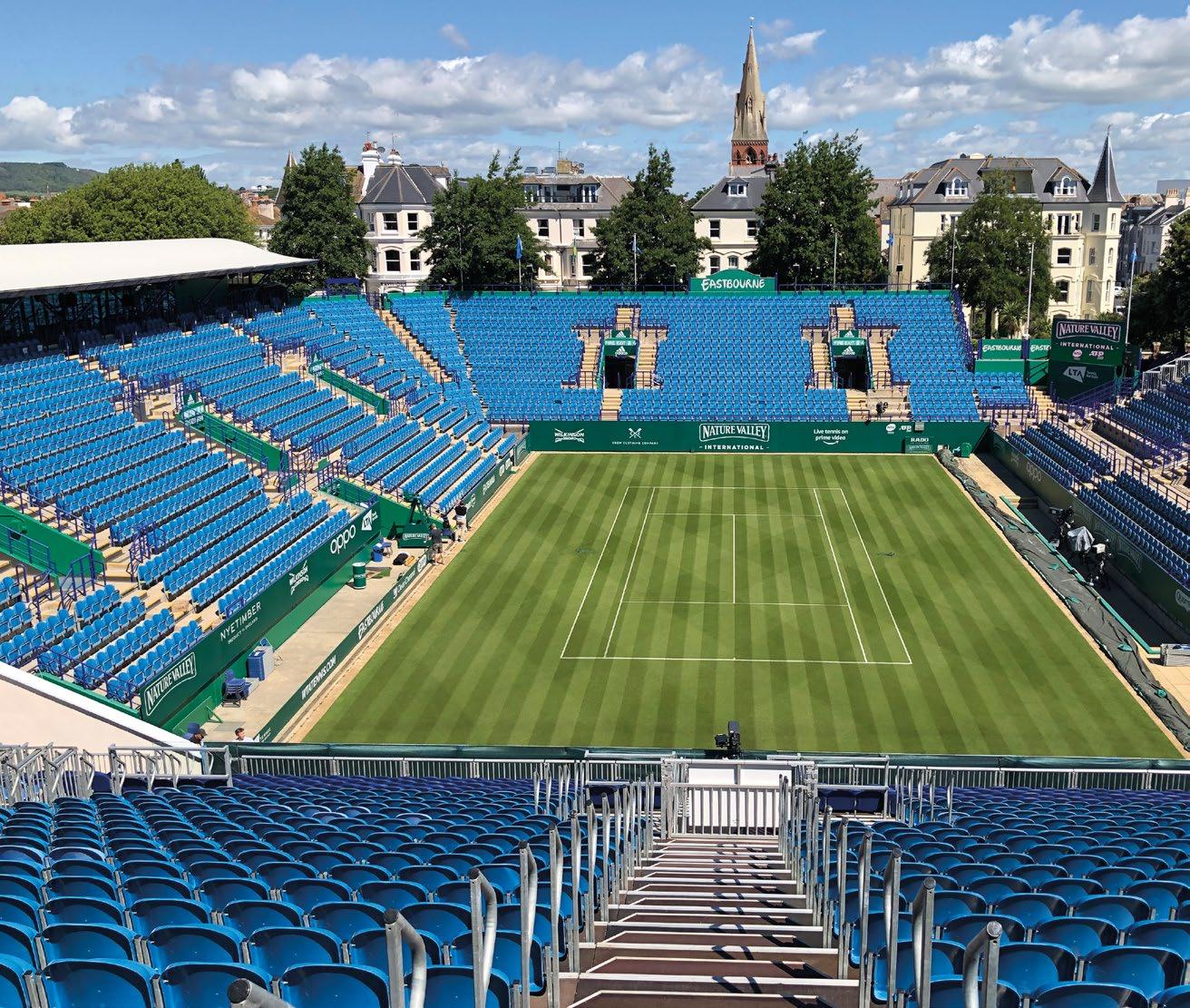
wellbeing benefits of bringing the team back together were clear to see”, Danny also describes how he used his time away from the courts to very good effect, especially in terms of: • Monitoring the maintenance and presentation of the courts after having vastly reduced their nutritional inputs; and • Spending many hours developing phone apps where every team member can upload and see everything that has happened/is happening on the playing surfaces in terms of, for example, levels of input (nutrition and irrigation), machinery usage and task times.
“This means we can all take a step back and in real time take a look at what we’re doing, perhaps in a new light,” he says.
“I’m always working to protect the council’s budget for (and the taxpayers’ investment in) the sites we maintain and, with no revenues coming into the courts and course during lockdown, I instigated a reduced maintenance programme that included a 50% cut in nutritional input. Trying to do the best possible with fewer resources than ever was always going to be a concern, of course, but this reduction in nutrition was effectively an extension of the ongoing work I’ve been doing in recent years. Indeed, I would go so far as to say that the lockdown has enabled me to progress my trial work by at least four years!”
Trial and error
These experiments have so far (since 2014) involved adjustments to the feed to regulate the peaks and troughs in sward (cool season plant) growth by accurately monitoring growth in tandem with air temperature (using 6°C as the base), rainfall/irrigation and soil temperature. He also outlines how in recent years he has been investigating more cultural methods to control pests, weeds and diseases, along with removing greater amounts of vegetation with less environmental impact. And he talks about his constant search for ‘new’ products that will help in all these respects.
“We’ve already been ‘running lean’ on feeding the ryegrass (courts) and I was really pushing my luck by halving the fertiliser. But after replicating wear and tear the best I could by changing the renovation and grooming techniques, I monitored how the plant reacted. I’ve found that reduced nutrition can prevent certain diseases – and we reduced/ monitored irrigation and the lack of fungicides. Indeed, the last time we applied a fungicide was September 2019 and nor do I use growth regulators; I want the plant to react naturally, so I don’t want to turn off the plant’s signals. Also, I believe there can be a ‘rebound’ to regulators in the sense that, for example, I have witnessed poa annua transform from being an inconspicuous plant into one that rapidly goes to seed. There is a place for regulators, perhaps at venues where there are shady areas, but we are very open here and don’t have any issues with shade.
“Reducing the inputs has not always been about saving money; it is more to do with finding processes and a system that suits this site. While I’m trying to grow grass in conditions that the plant doesn’t
like, the aim has always been to encourage ‘happy’ growth’ and, I’m glad to say, the playing surfaces have responded well. It’s about matching growth rates and yield potential to actions. And the results have meant that we have skipped years of trials, which in a normal season I would usually try and fit in around a heavy playing schedule.”
The new regimes will now be carried forward as standard practices starting in September when the Devonshire Park courts will undergo renovations – a full but improved (and scaled-back) programme based around hollow tining and scarification. This is normally completed by the middle of October. Danny says: “Because of what I’ve learned during the past few months, I’m already excited about the likely performance of the courts for the 2021 season.” ■
Award-winning teamwork – again!
NOBODY WAS MORE SURPRISED than the Devonshire Park grounds team when the winner of the GMA CubCadet Infinicut Professional Tennis Courts Grounds Team of the Year Award was announced at the 2019 Industry Awards. “We were up against very strong competition,” says head groundsman Danny Negus, “and, having won the award in 2018, we really didn’t expect our name to be called out again!” But for the players and organisations that utilised the Eastbourne facility in 2019 – as well as those in the industry who know what is consistently being achieved by Danny and his small team – winning the award for the second consecutive year was just reward for another tremendous 12 months of achievement during a season when the ‘difficult’ weather played havoc. Indeed, included in the many plaudits were:
– Nature Valley International supervisors’ report
– Gavin Fletcher, tournament director, Nature Valley
International
– Caroline Wozniacki (former world number one)
– commentator John Inverdale
Weather aside, 2019 was an eventful year for Danny and his team, not only in terms of tennis but also with the 18- hole golf course that has been added to their remit, as he explains: “We went from strength to strength last year, once again experiencing a nine-day tennis event (the Nature Valley International) selling over 55,000 tickets and including an increased draw for the Women’s Tennis Association, meaning we had 144 players on the first day of WTA practice.
“In addition, I project managed and, as a team, we assisted in the removal of two buildings and the addition of two new AELTC specification courts – which were seeded in April 2019 – to take the total up to 26 world-class Championship courts at Devonshire Park. This complements our work at our external sites at Meads Tennis Club and Moira House School, where there are seven courts in total.”
The new courts are to All England Lawn Tennis Club specification, sitting on 75mm lateral and 100mm main drainage above 150mm of stone (20mm-40mm washed angular aggregate), a 50mm layer of 7mm-10mm washed pea gravel topped by 275mm rootzone (23% clay) then the grass seed which is Limagrain MM50, a perennial ryegrass comprising 40% Malibu and 30% each of Venice and Alison grasses. The rootzone mix also comprises fine, very fine, medium, coarse and very coarse sand (20%, 9%, 15%, 5% and 2%, respectively), as well as silt, coarse silt and fine gravel. There is no stone or coarse gravel. All courts are maintained to international specifications.
Danny adds that Devonshire Park was also fortunate to secure funding (from the Lawn Tennis Association) for drainage works and changes to site accessibility… Another inhouse project completed with success, he says.
All these – plus the golf course and amenity areas – are managed by the team of four fully-qualified members of staff, including Danny, plus one summer helper. “The fact that we provide a world-class venue for a major international sporting event, coupled with our achievements at the golf course, makes me so very proud of this team’s truly outstanding achievement.”
Danny has also rescheduled the management and maintenance processes of the 6,598-yard golf course, the largest in the area. With only two members of staff, their results have seen a doubling in membership, an increase in green fees and, most importantly, they have saved the course from expected closure.
Danny adds: “For the 2019 International we introduced a new image for our show courts, cutting in a different way (creating a pattern). This encouraged much discussion among players, officials and commentators, and even resulted in a BBC interview on how we plan and carry out this operation. This succeeded in getting people talking about the courts in a more ‘surface to ball relationship’ way, and it received outstanding encouragement from our peers as well as positive feedback from players and tournament directors.
“Of course, this season has been spoiled by the coronavirus and while we have opened for community use, we are already anxiously awaiting next year when we can once again see players of all abilities enjoy our playing surfaces.”

